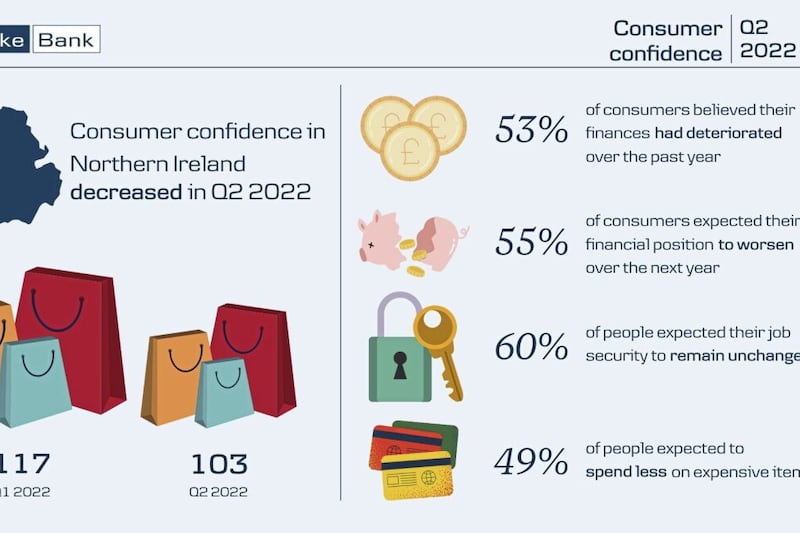FORECASTS for economic growth in Northern Ireland have been revised downwards by Danske Bank's latest quarterly barometer.
If a no-deal Brexit is avoided, the economy will grow by 0.9 per cent this year, the bank predicts.
The weaker global environment and the EU divorce contributed to the modest rate of expansion.
Danske chief economist Conor Lambe said: "Assuming that a no-deal Brexit is avoided, we expect the Northern Ireland economy to grow by 0.9 per cent in 2019 and 1 per cent in 2020, below the 1.2 per cent we expect UK GDP to grow by in both years.
"A combination of strong wage growth and more stable inflation is likely to lead to solid growth in consumer spending, but the lack of clarity around the UK's future relationship with the EU is expected to continue holding back business investment."
Local businesses have been warning for months about the effect of Brexit and the lack of devolved government at Stormont.
Mr Lambe added: "We have revised our forecast for economic growth in Northern Ireland downwards for both 2019 and 2020.
"This largely reflects the modest data for the first half of the year, increased Brexit-related uncertainty and the weaker global economic environment."
The forecast is down from the Bank's previous prediction, in June, that growth would hit 1 per cent this year and 1.3 per cent next year.
In its latest Northern Ireland Quarterly Sectoral Forecasts report, Danske Bank said that the Northern Ireland economy probably expanded in the second quarter of the year, but the rate of growth over the first half of the year remained modest.
The report said that the information and communication and professional, scientific and technical services sectors are expected to be the fastest growing parts of the economy over the next two years.
Output in the construction sector is forecast to rise by 1 per cent in 2019 and 0.9 per cent in 2020.
Expected output growth in the wholesale and retail trade sector has been revised down to 0.9 per cent in 2019 and 0.9 per cent in 2020.
Growth in the other consumer driven sectors has also been revised downwards, including the accommodation and food services sector to 1 per cent in 2019 and 1.2 per cent in 2020.
The forecast for growth in the manufacturing sector has been revised upwards to 1.3 per cent in 2019, boosted by the stockpiling activity ahead of the original Brexit deadline in March 2019 and continued output growth in the second quarter of the year.
But the outlook for 2020 has been revised slightly downwards to 1.4 per cent.
The pace of growth in the Northern Ireland labour market looks to be experiencing an anticipated slowdown, the bank said.
Danske expects the unemployment rate to average 3.2 per cent in 2019 and 3.8 per cent in 2020.







